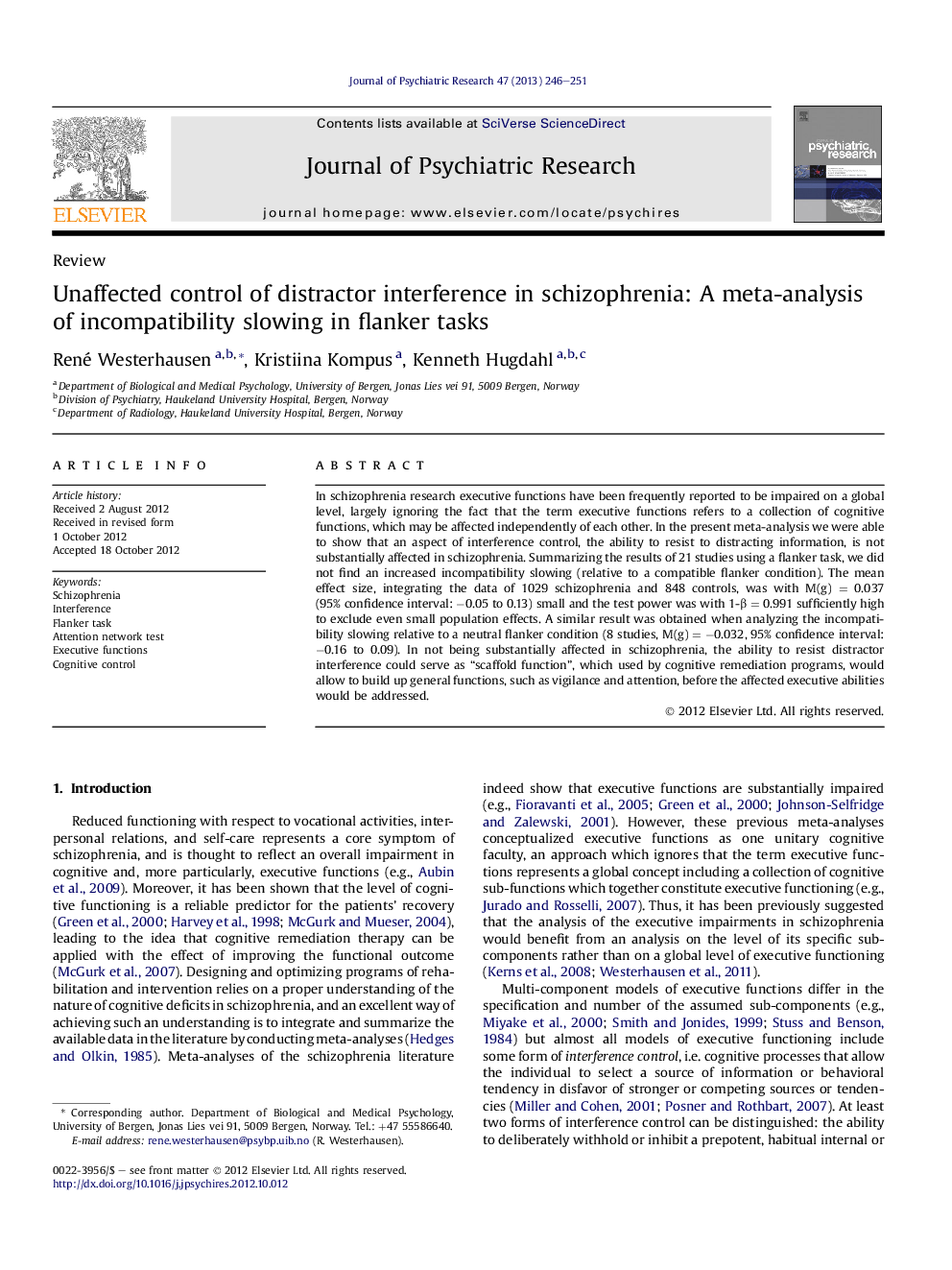| Article ID | Journal | Published Year | Pages | File Type |
|---|---|---|---|---|
| 10302501 | Journal of Psychiatric Research | 2013 | 6 Pages |
Abstract
In schizophrenia research executive functions have been frequently reported to be impaired on a global level, largely ignoring the fact that the term executive functions refers to a collection of cognitive functions, which may be affected independently of each other. In the present meta-analysis we were able to show that an aspect of interference control, the ability to resist to distracting information, is not substantially affected in schizophrenia. Summarizing the results of 21 studies using a flanker task, we did not find an increased incompatibility slowing (relative to a compatible flanker condition). The mean effect size, integrating the data of 1029 schizophrenia and 848 controls, was with M(g) = 0.037 (95% confidence interval: â0.05 to 0.13) small and the test power was with 1-β = 0.991 sufficiently high to exclude even small population effects. A similar result was obtained when analyzing the incompatibility slowing relative to a neutral flanker condition (8 studies, M(g) = â0.032, 95% confidence interval: â0.16 to 0.09). In not being substantially affected in schizophrenia, the ability to resist distractor interference could serve as “scaffold function”, which used by cognitive remediation programs, would allow to build up general functions, such as vigilance and attention, before the affected executive abilities would be addressed.
Keywords
Related Topics
Life Sciences
Neuroscience
Biological Psychiatry
Authors
René Westerhausen, Kristiina Kompus, Kenneth Hugdahl,
